Ross O'Callaghan, the Irish photographer and filmmaker behind the Paddy Irishman Project, has secured the worldwide trademark and copyright to the phrase "Paddy Irishman" to protect it from negative use commercially.
The artist, who has also released seven stunning new Paddy Portraits ahead of St. Patrick's Day, secured the rights as a symbolic gesture to address enduring misconceptions about Ireland and prevailing stereotypes about the Irish.
The trademark and copyright on "Paddy Irishman" prevents its use for publication or commercial use for any other reason than in association with the positive stories, images of Ireland and Ireland's Paddies.
The copyright is confirmed in Ireland’s primary diaspora territories, the UK, Australia, Europe, and the United States of America.
“Paddy Irishman is an enduring and damaging stereotype about the Irish, started in colonial times but still alive today. Increasingly, it projects that Irish identity is exclusively white and straight and that doesn’t reflect contemporary Ireland. It needed to change, so we trademarked it," said O'Callaghan.
"There are thousands of real Irish men from diverse backgrounds, ethnicities, sexualities many with inspiring stories of resilience and achievement, called Paddy. All proud to be Irish in a new Ireland, a young nation with an ancient history where we are as proud of our heritage and history as we are of the ordinary stories of regular people. These are the real Paddy Irishmen.”
Launched in 2021, The Paddy Irishman Project seeks to capture and showcase the diversity and talent of the contemporary Irish male and challenge the global stereotype of the Irish Paddy. The collection of photographic portraits portrays Irish men called Paddy, Pat, Padraig, Patrick or any variation of the name, to reframe the often derogatory pejorative, ‘Paddy Irishman’.
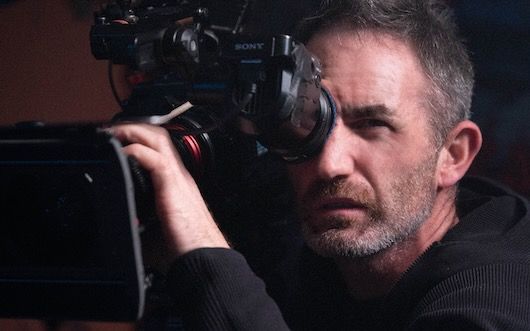
Photographer and filmmaker Ross O'Callaghan.
In 2023, a selection of 50 Paddy Irishman portraits was unveiled across two exhibition sites in NYC during St. Patrick's week, to global renown. It was the first not-for-profit photographic art project of its kind, capturing 50 Paddies, diverse in age, background, ethnicity, and sexuality.
The series of portraits tells the story of a remarkable intergenerational cross-section of the island and promotes a new narrative of contemporary Ireland. It challenges the idea that there’s any such thing as a ‘typical’ Paddy and asks us to question our own assumptions around what it means to be Irish and male in today’s society.
It was the success of the first stages of the project that enabled O’Callaghan to secure the worldwide rights to the phrase ‘Paddy Irishman’.
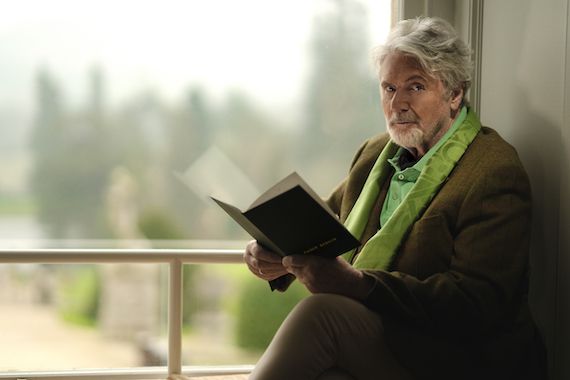
Paddy Bergin. Credit: Ross O'Callaghan/The Paddy Irishman Project
“There are no plans to use the trademark commercially, but if it helps spark the conversation about what we are no longer willing to tolerate, I think that’s a good thing,” says O’Callaghan.
“There is a new confidence in our generation of Irish people across music, film and the arts and we’re increasingly ready to speak up and show who we are and what we are about to the world; an incredibly talented and diverse people. If my work can play a small part in that story, I, and the Paddies who have given so much support to the project, will be happy to contribute.”
This year, in addition to securing the trademark and copyright of Paddy Irishman, seven stunning new photographs have been added to the collection, including portraits of Hollywood actor Patrick Bergin; Michelin-starred chef Patrick Guilbaud; Waterford hip hop artist Pat Lagoon; Limerick art school graduate Paddy Critchley; Galway fisherman Paddy Oliver, who rescued a pair of paddle-boarders missing at sea for 15 hours; Paralympic swimmer Paddy Flanagan; and Under21 Rugby hopeful Paddy McCarthy.
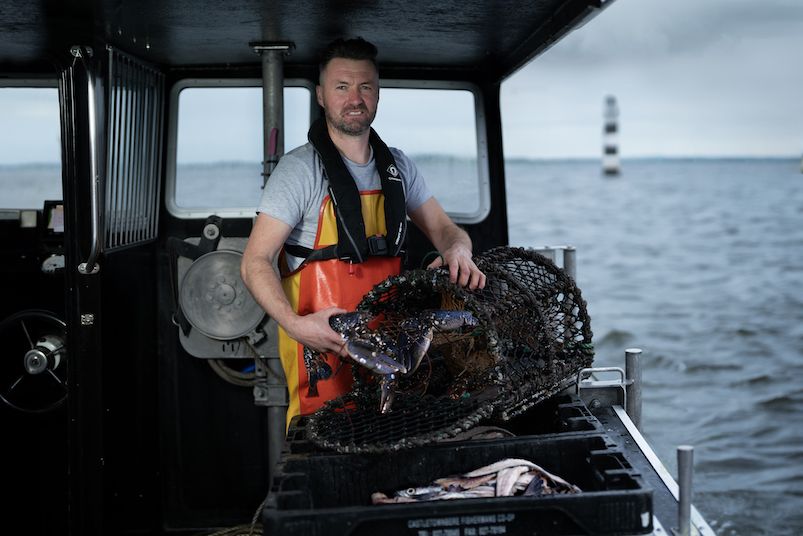
Paddy Oliver. Credit: Ross O'Callaghan/The Paddy Irishman Project
About the selections this year, O’Callaghan said: “I don’t set out with a plan of who to capture or how to portray them, I follow my instinct about their stories that tell us a little of who we are, how we got here and where we’re going as a country and a nation. When Patrick Guilbaud first set up his restaurant in Dublin in 1981, most of us were still boiling all our vegetables, and pasta was still seen as a bit exotic. Now, you go into any big supermarket and you can buy anything from caviar to sushi to seaweed crisps. Patrick Guilbaud, a Frenchman who has made Ireland his home, led that change.
“Getting to photograph fisherman Paddy Oliver was also a personal goal of mine. His everyday heroism is so powerful. To find and rescue two people clinging for their lives to a buoy in the middle of the dark ocean while a village anxiously waited with diminishing hope, is a story that made the news all over the country. For me though it’s his spirit of decency and how humble he is about what he did that is a trait many of us aspire to in Ireland today.”
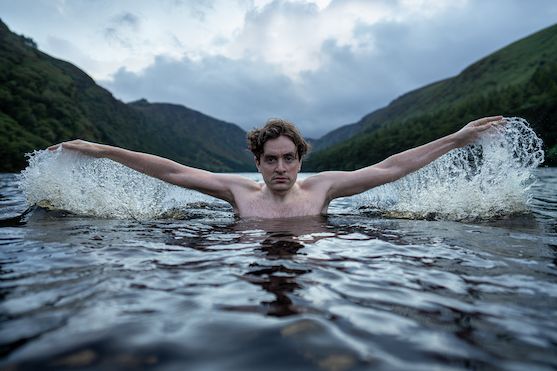
Paddy Flannagan. Credit: Ross O'Callaghan/The Paddy Irishman Project
The photographer and filmmaker is continuing to add to the suite of Paddy portraits and believes it is important to reflect the reality of lived experience in Ireland through his work.
He also plans to extend the series to a suite of emigrant Paddies from the diaspora, including North America, where 34.5 million claim Irish-American heritage.
“The work of the project is never political but it is authentic and I’m always open to meeting and photographing new Paddies, to find more of the stories we need to tell, to reflect the Ireland of yesterday, today and tomorrow," said O'Callaghan.
The full suite of portraits including the seven new Paddies can be viewed online at paddyirishmanproject.com.
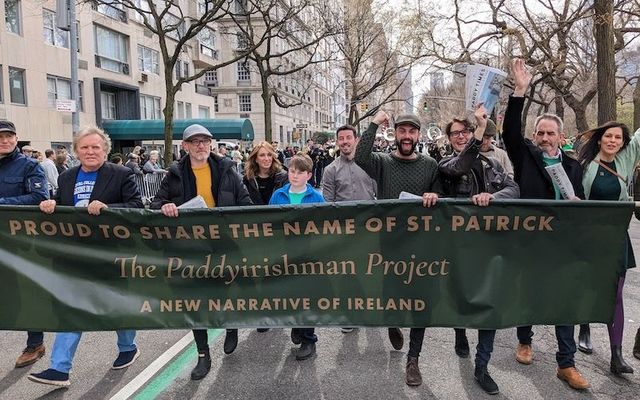
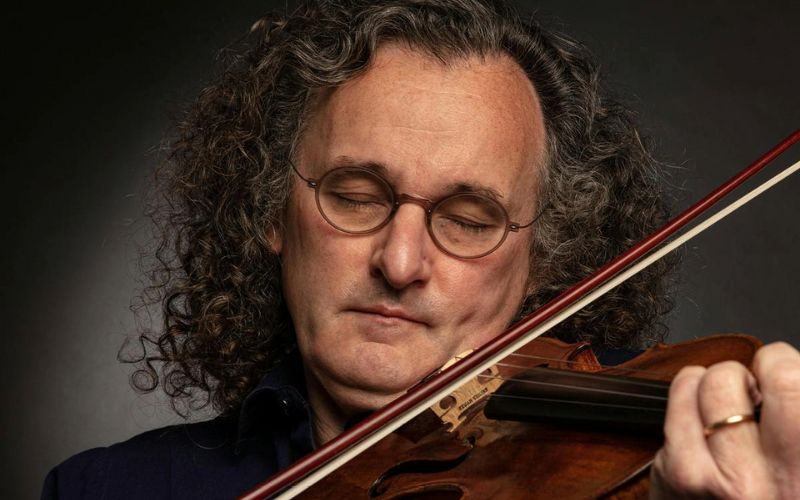
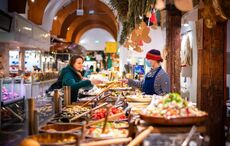
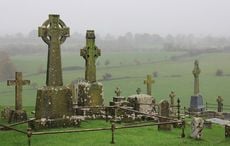
Comments